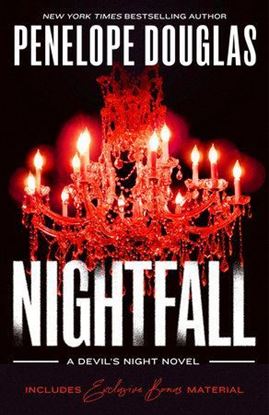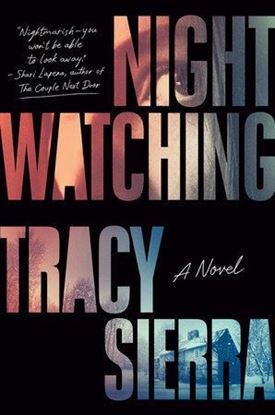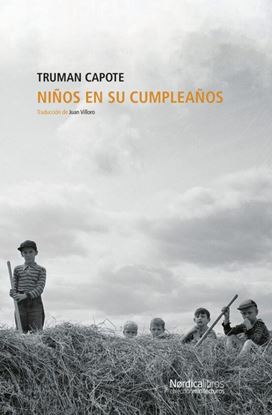

NIDO DE NOBLES (TB)
Lavretski, el heroe de esta novela, ha tenido una educación singular: su padre, un noble terrateniente que se fugó y casó con una sirvienta, y luego la dejó en Rusia para vivir "la vida alegre" de Europa, quiso hacer de el "no solo un hombre, sino un espartano". Ya mayor, y despues de una "boda por amor" y del correspondiente periplo europeo, vuelve a Rusia cabizbajo, separado de su mujer (que le engañaba) y expuesto al ridículo… pero con la firme convicción de emprender reformas y cuidar la tierra. Nido de nobles (1859) es una hermosa y melancólica novela sobre la persistencia del deseo, testimonio de una generación perdida en la Rusia del momento, una generación que solo podía levantarse "en medio de la oscuridad".
950
NIEBLA ARDIENTE
Para Esther, el recuerdo de su infancia y juventud se reduce a la enfermedad mental padecida por su hermana, a los cuidados necesarios y a las precauciones siempre insuficientes. Luego, a su desaparición y asesinato. Entonces, ¿cómo es posible que en ese arranque de enero de 2013, en Barcelona, su figura se le aparezca en pantalla? ¿Cómo podría ser esa mujer, en medio de disturbios en la sierra hidalguense transmitidos por la televisión española, su hermana víctima de feminicidio?
Ya una vez Esther cruzó el Atlántico para escapar del dolor, de la pérdida y de la culpa. Ahora hará el recorrido inverso para buscar la verdad que le fue arrebatada junto con la vida de Irene. ¿Es cierto que, como tantas, fue secuestrada y asesinada?
Niebla ardiente es una estremecedora novela que habla sobre la pérdida, el duelo, el amor, pero, sobre todo, sobre la culpa y la necesidad de pedir perdón.
850
NIGHT FLIGHT TO PARIS
October 1942: it’s been two years since Kate Rees was sent to Paris on a British Secret Service mission to assassinate Hitler. Since then, she has left spycraft behind to take a training job as a sharpshooting instructor in the Scottish Highlands. But her quiet life is violently disrupted when Colonel Stepney, her former handler, drags her back into the fray for a risky three-pronged mission in Paris.
Each task is more dangerous than the next: Deliver a package of forbidden biological material. Assassinate a high-ranking German operative whose knowledge of invasion plans could turn the tide of the war against the Allies. Rescue a British agent who once saved Kate’s life—and get out.
Kate will encounter sheiks and spies, poets and partisans, as she races to keep up with the constantly shifting nature of her assignment, showing every ounce of her Oregonian grit in the process.
1,250
NIGHT SHIFT (MM)
Night Shift—Stephen King’s first collection of stories—is an early showcase of the depths that King’s wicked imagination could plumb. In these 20 tales, we see mutated rats gone bad (“Graveyard Shift”); a cataclysmic virus that threatens humanity (“Night Surf,” the basis for The Stand); a smoker who will try anything to stop (“Quitters, Inc.”); a reclusive alcoholic who begins a gruesome transformation (“Gray Matter”); and many more. This is Stephen King at his horrifying best.
750
NIGHTFALL. DEVIL'S NIGHT 4
They call it Blackchurch. A secluded mansion in a remote, undisclosed location where the wealthy and powerful send their misbehaving sons to cool off away from prying eyes.
Will Grayson has always been reckless, wild, and never been bound by a single rule other than to do exactly what he wanted. He learned long ago that being treated like an animal gives you permission to act like one. Back in high school, he might’ve enjoyed backing Emory into corners when no one was looking, but he could also be warm. And fierce in keeping her safe.
But the truth is, he has a right to hate her. Because it’s all her fault. Everything. Devil’s Night. The videos. The arrests. She’s to blame—and yet she regrets nothing.
He never expected one of his enemies to come straight to him. But now he knows she’s here somewhere. And as the security detail leaves and the door to the gilded cage opens, giving Will free reign of the house and grounds for another unsupervised month, he remembers with a smile…
995
NIGHTWATCHING
Home alone with her young children during a blizzard, a mother tucks her son back into bed in the middle of the night. She hears a noise—old houses are always making some kind of noise. But this sound is disturbingly familiar: it’s the tread of footsteps, unusually heavy and slow, coming up the stairs.
She sees the figure of a man appear down the hallway, shrouded in the shadows. Terrified, she quietly wakes her children and hustles them into the oldest part of the house, a tiny, secret room concealed behind a wall. There they hide as the man searches for them, trying to tempt the children out with promises and scare the mother into surrender.
In the suffocating darkness, the mother struggles to remain calm, to plan. Should she search for a weapon or attempt escape? But then she catches another glimpse of him. That face. That voice. And at once she knows her situation is even more dire than she’d feared, because she knows exactly who he is—and what he wants.
1,250
NIÑAS SABIAS
Es 23 de abril, fecha de nacimiento de Shakespeare, y las gemelas Dora y Nora Chance, actrices y coristas de segunda fila, se disponen a celebrar sus setenta y cinco años. Suena el timbre: en una tarjeta blanca llega la invitación a la fiesta de su padre, el legendario actor Melchior Hazard, quien nunca ha reconocido a las hermanas como sus hijas y que ese mismo día cumple cien años. Así comienza Niñas sabias, la historia de dos mujeres libres y eternamente jóvenes que, nacidas en el lado equivocado de la ciudad, siempre se han sentido atraídas por el brillo del teatro y la farándula. Desde su insólita infancia y a lo largo de su estrambótica carrera, la vida de las gemelas es una sucesión de episodios grotescos: entre identidades equivocadas, novios prestados, rivalidades acérrimas y fiestas que culminan en incendios, el mundo de Dora y Nora, poblado por una legión de personajes improbables, es un lugar que no admite reglas y en el que reina la desvergüenza suprema.
1,850
NIÑOS EN SU CUMPLEAÑOS
Escrito en 1948, este maravilloso relato trata de la amistad verdadera, de los sueños, del primer amor y del paso de la edad. El propio Capote lo consideraba como el mejor de su producción. Está ambientado en Alabama en el verano de 1947, en un pueblo donde casi lo único que se podía hacer era tomar helado de tutti-frutti sentado en el porche viendo pasar el autobús de las seis. Un día llegará en ese autobús una chica que despertará a los habitantes del pueblo: Lily Jane Bobbit (y su madre, que nunca habla), que revolucionará las vidas de dos amigos, Billy Bob Murphy (cuyo padre habia fallecido recientemente en la Primera Guerra Mundial) y Preacher Star, y dará lugar a una lucha por llamar su atención. El resultado es un retrato inolvidable de los protagonistas, de sus padres y de la vida en el profundo sur de los Estados Unidos de mediados del siglo xx.
450

















